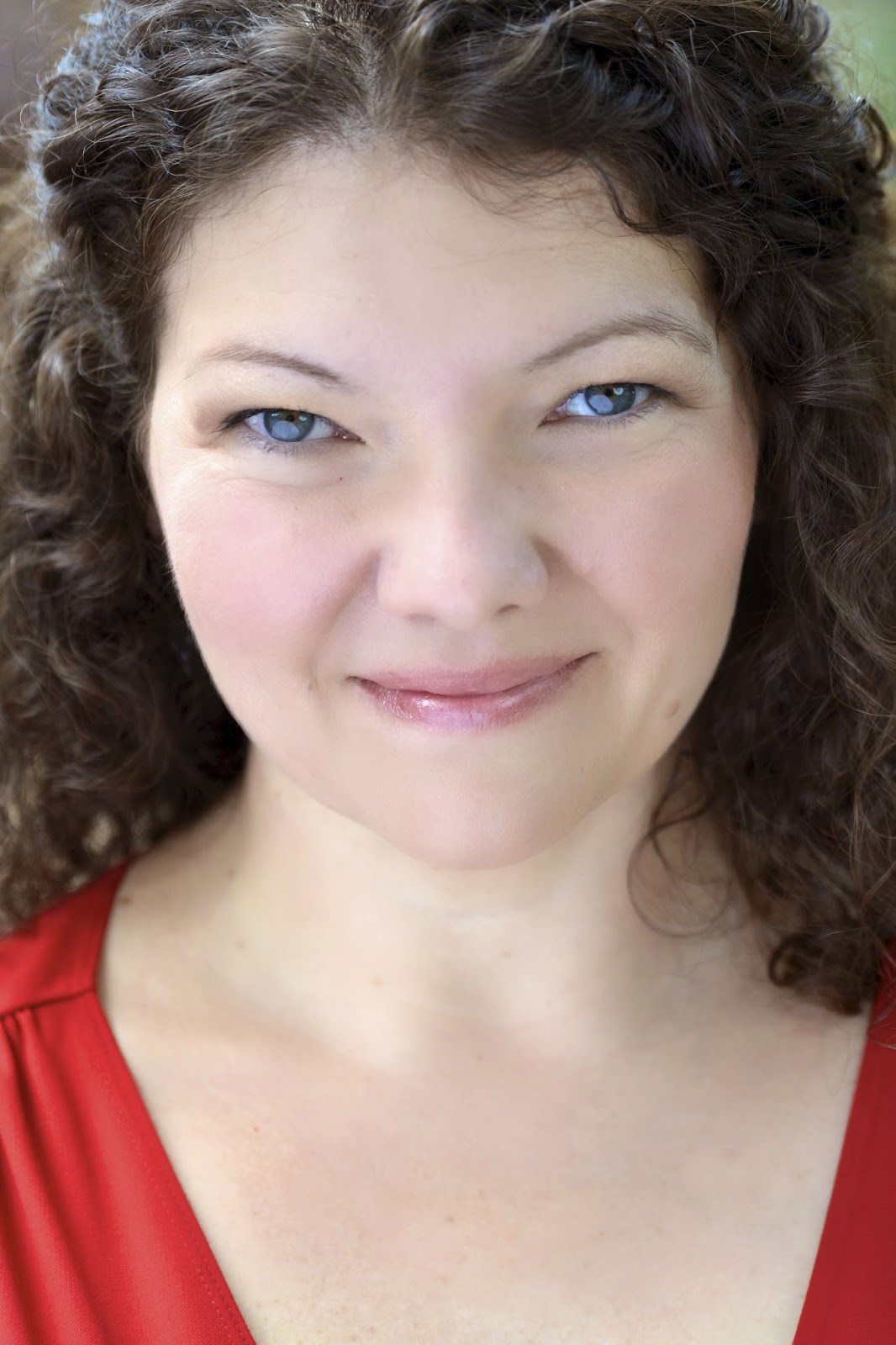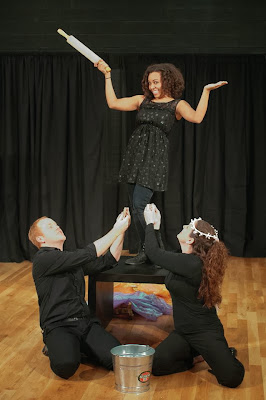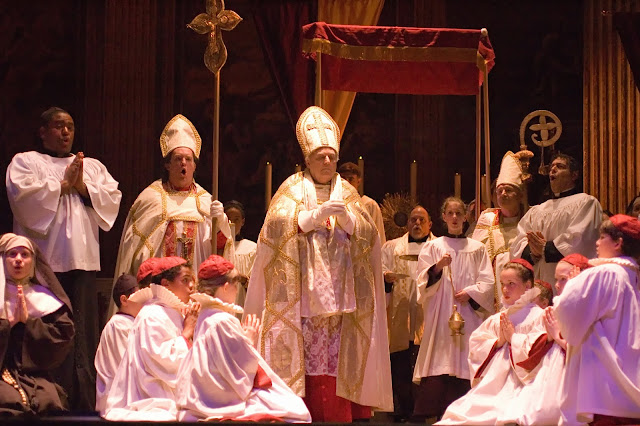A Silver Celebration with Maestro Walter Huff
years in this Chorus Master position has brought forth so many folks asking me
to write or speak on the highlights of these years. Some past events are a
blur, yet some are clear as day. My debut as Chorus Master with Atlanta Opera
was in the 1988 – 1989 season. As I think back to that start, I also think of
how much the world around us has changed since then.
were hardly any cell phones to bring to a rehearsal. Choristers played cards,
read, and talked in their dressing rooms during a show. Now, one sees laptops
at every dressing station, and phones entertaining our every desire. We
experienced the year 2000 Millennium and the life-changing event of 9/11. We
actually had a rehearsal on that night of Sept 11, 2001, which I will never
forget. 1988 to 2014. Definitely, a changed world now.
permanent rehearsal space — for years! We relied on empty floors in various
Midtown skyscrapers (with cement floors, no less), churches, and vacant
buildings across Atlanta. We never knew where we would be rehearsing from show
to show, for many years — until our first real office/rehearsal
“home” on West Peachtree, and now Northside Drive.
6 venues throughout these 25 years – Alliance Theater, Symphony Hall, the Fox
Theater (a big exciting move…going from about 1800 seats at the Arts Center
to over 4000 at the Fox), Civic Center, and now the Cobb Energy Center — with
5 years of “Amahl and the Night Visitors” at Spivey Hall, and several
Mozart “Requiem”s at St.Philips Cathedral.
productions with multiple performances of each. Many ask me: what were some of
your favorites? I’m not so good at those kind of answers. I truly try to make
whatever I’m presently working on my “favorite” for that period of
time. But, if I had to answer, I’d say: our first “Turandot” at
Symphony Hall, Verdi’s “Macbeth” (a true blast for an opera chorus,
especially the women’s chorus “Witches”), director Whitfield Lloyd’s
sparkling production of “Manon”, experiencing Richard Strauss with
“Der Rosenkavalier” and “Salome” (operas that stay with you
forever), our musical theater experience of Gershwin’s “Of Thee I
Sing” at the 1996 Olympics, the choral showcase of a staged “Carmina
Burana”, our first Wagner with “The Flying Dutchman”, and the
excitement of Atlanta Opera bringing “Porgy and Bess” to the Atlanta
scene, and eventually an acclaimed European tour for members of the chorus.
Throughout all of these
years, all the changes in the world, and all this music swiftly passing by in
front of me, I remember the thousands (!) of choristers that have sung for me.
We have lost some of our chorus friends along the way. That is never easy for
our close community. The chorus members that Atlanta audiences see on the stage
in our productions tirelessly sacrifice their time, energy, and creative
talents for the endeavor of quality opera in Atlanta, and for achieving the
notion that an opera chorus matters. An opera chorus indeed matters — for the
telling of dramatically compelling stories, and for offering up the glorious
music of the masters. The people and the music. That can get one through 25
years. For sure.
celebrate those that sing the great operas in Atlanta, year to year, in our
upcoming September concerts…as we offer up some of the greatest opera
choruses, a wealth of literature for all to enjoy.
 |
| Walter Huff and The Atlanta Opera chorus in rehearsal for the Choral Silver Celebration (Photo courtesy Jeff Roffman) |
 |
| Photo courtesy Jeff Roffman |










































